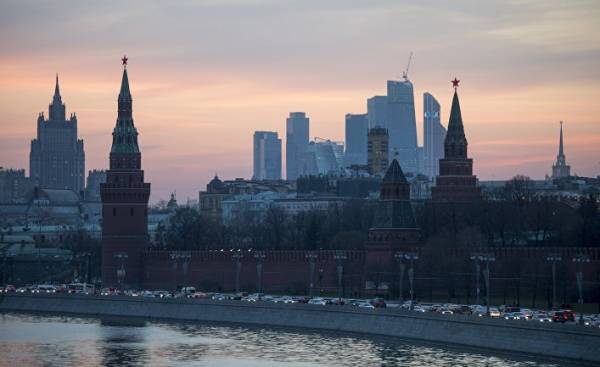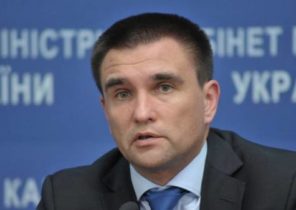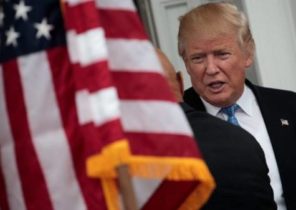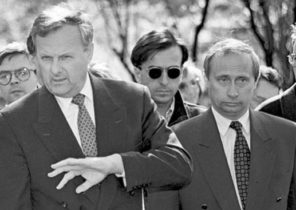
After meeting with Donald trump on Thursday, may 25, European Council President Donald Tusk (Donald Tusk) said that their views on Russia differ. And although we don’t know what exactly they diverge, it is safe to say that in Russia the trump is more peaceful than Tusk — despite all the problems it faced in the U.S. because of the scandal around his alleged ties with Russia. From the point of view of some observers, this may indicate that Russia has some influence on him. From my point of view, it is an indication that trump still hopes to build a pragmatic relationship with Russia’s President Vladimir Putin.
However, what form can take this relationship remains unclear. In this case we are talking about a fairly complicated situation, which cannot be reduced to simplistic ideological dilemma between appeasement untrusted mode and a cynical understanding of the military and economic interests of America. The main question is, does the US want to establish with Russia a long-term relationship that will remain even after the terms of the trump and the President of Russia Vladimir Putin.
Perhaps America doesn’t want that. Some of the fiercest opponents of Putin, especially in the Ukraine, I hope that it is corrupt and fueled by the oil regime is leading Russia to collapse and disintegration on the Soviet model. If you expect this outcome, in a long term relationship there’s no need — you just have to be patient to wait for it to end. Harsh economic sanctions and the impact on oil prices will eventually take effect and may even turn favorable for some of the West implications. In the end, Western leaders, who feared that the collapse of the Soviet Union could threaten global stability, showed excessive caution: the mafia is not captured, the Russian nuclear Arsenal, and the former Soviet Union and has not begun war in the spirit of Yugoslavia.
Waiting for the moment when Russia will collapse under its own weight, is very similar to the tactics of the lizard by the bite injects into the tissues of its victim, the poison which prevents blood clotting. After being bitten by the giant lizard follows the victim until until she bled to death. The problem with this approach is that, although hunting monitor lizard ends at the moment when its victim dies, Russia is not going to die, even if it falls apart, which is also unlikely, because in economic terms it is much stronger Soviet Union in the last years of its existence.
Moreover, if Russia falls apart, the US will have to build relationships with many rather large and resource-rich territories with unpredictable political views and military tendencies. 25 years after the collapse of the USSR, despite a lot of effort from the United States, only a few former Soviet republics have made a choice in favor of the West. To bet that with a disintegrating Russia would be much easier to deal is a mistake. For example, in the case that the Caucasus is separate from Russia, most likely, he will make a choice in favor of Islamist fundamentalism, and not in favor of the West.
Therefore, the long-term relations with Russia based on the assumption that this country will last a long time, is a reasonable approach. Russia’s very easy to find on the map because it’s big. It is completely capable to self-sufficiency. For several centuries it was a military power whose opinion had to be considered. Putin goes out of power, die or just do both, but the country that to many has become difficult to separate his personality will continue to exist.
The US can treat Russia as to its long-term geopolitical enemy, a dangerous counterweight to Western values, global force, having negative impact on elections in other countries, and so on. In the end, the Byzantine tradition that gave rise to Putin, for centuries was one of the most powerful traditions in the life of Russia, and it will not disappear after Putin. To accept the fact that this tradition is one of the constituent entities of Russia, and to deal with it even when its members formally are not at the helm in the country, is a clear and principled approach. In essence, this is the approach advocated by George Kennan (George Kennan) in his “Long telegram,” and much of what he wrote Kennan in 1946 about the Soviet Union, applicable to modern Putin’s Russia. This is one of the arguments in favor of this approach, which is outlined Kennan in his “Long telegram”. On Russia, he wrote:
Impervious to the logic of the arguments, it is highly sensitive to logic of force. For this reason it can easily withdraw — and usually does — at any time when it meets a strong resistance. Thus, if the enemy is strong and clearly shows a willingness to use his power, he rarely has to use force. If you choose the right line of conduct in such situations, it would not be necessary to conduct humiliating negotiations with the enemy.
Thus, all you need to do United States, is convincing, but be careful to demonstrate its willingness to use force, and then Russia — it doesn’t matter who at this point will lead a retreat. However, it is unclear whether the United States can afford to project power every time when Russia provokes them. What will become of the popularity of the US administration, if it decides to go in Syria, VA-Bank, to remove Bashar al-Assad out of power? How many American voters will support a military campaign in Ukraine? Undoubtedly, other less drastic measures by the US, Russia does not accept as a convincing demonstration of the power and willingness to use it. Putin is always ready to do one step more, because he’s not feeling the pressure of democratic principles, and the likelihood that in the long term, Russia will control the same leaders like it, is quite high. All of this undermines the position of neoconnish concept.
However, the tactics of the lizard and the doctrine of containment Kennan there is an alternative. It is to ignore Putin’s self-serving perception of Russia as a conservative, Orthodox bulwark against the decadent West and Islam, seeing in it only a fragile propaganda image, and to perceive this country as part of Western civilization. Today we consider Poland and Hungary it is through this prism, despite the fact that democracy and Western values have experienced a pretty serious shocks in these countries.
This perception will inevitably result in a clear strategy: you will need to cooperate with Russia where it behaves like a Western state, and to oppose it where it behaves differently. For example, the support that Russia provides to the secular Assad regime is fighting against Islamist fundamentalists who fits into the Western tradition. Despite all the crimes committed by Assad, the fall of his regime is completely deprived of all protection desnitskiy community in Syria. If the US will allow Russia to support the Assad regime and join it in the fight against ISIS (a terrorist organization banned in Russia — approx. ed.), it will not be a violation of long-standing American tradition, which consists in supporting regimes of the Middle East before the start of the Arab spring and the creation of alliances with repressive Gulf States. Morally and ideologically, States are not required to support antiasadovskuyu opposition: if the opposition ever stand at the head of the country, it will not put Syria on a Pro-Western track.
On the other hand, a seizure of Russia in Ukraine was strongly anti-Western. The US was right to try to strengthen the institutions and economy of Ukraine after this capture, although they might be mistaken in the choice of political forces that had to be maintained, because the level of corruption in the current leadership of Ukraine may completely discredit Western values in this country. However, the U.S. decision not to provide the Kiev regime’s deadly weapon was proper because this could lead to escalation, which would cause harm to the Western world.
Russia is committed to free trade and open borders, which in essence, is Western aspirations. This is evidenced by her attempts to create a customs Union with former Soviet republics, its relaxed attitude to emigration and immigration, her unrelenting desire to join the world trade organization, despite all political obstacles. This desire should be supported. Economic sanctions against sectors of the Russian economy, triggering a response by the Putin government, was a mistake: they push Russia into a backward, anti-Western direction.
Sanctions against specific officials who are anti-Western, Byzantine politics, against those who took an active part in the aggression in Ukraine, against those who had violated human rights and harassed dissidents and minorities, is justified. The West and USA in particular would be right if they banned the Russian state owned “media”: the existence of the propaganda machine contradicts the Western concept of a free press. The West has every right not to accept certain representatives of the Russian regime and to show its negative attitude to what they preach. But sanctions against Russia as a country and against the Russians, counterproductive.
The West needs to soften its visa policy may even offer Russians visa-free entry and to create for them more opportunities in universities and Western companies. The real reason the EU is doing it for the Ukrainians, is not to reward the government in Kiev for his services. The EU is doing this to Ukrainians a taste of life in the West studied it and built it at home. The Russians should also be a possibility, otherwise they will never know that their current governments could be alternatives.
Putin and his cronies get a kick out of how much trouble Russia is causing of Washington and Brussels. It’s a little counterproductive, but it also means the recognition of their skill as warriors and trolls hybrid conflicts. This allows you to prove to the Russians that the West hates and fears them. This feeling is the basis of support for the policies of Putin and the Russians. This is opposite of what the U.S. would like to see if in the long term, they considered Russia as part of the West.
The conclusion of the transaction in Syria, the expansion of trade and the easing of entry for Russians along with support for Pro-Western course of Ukraine with the preservation of sanctions against specific Russian officials and with the fight against Russian propaganda seem to many Westerners is very contradictory policy. In fact it is not. The essence of this approach is to interact with the current Russian leadership to the extent that is necessary to maintain in the long term, such a perception of Russia, in which it is considered part of the West. The change of regimes occurred in Russia, more than in most Western countries. The pendulum will continue to swing from side to side, regimes will come and go, but Russia and its people will remain, therefore, open doors to Russia and the Russians — not promises to open them if she meets certain conditions is a powerful long-term momentum.
The administration of the trump, apparently, is not trying to look so far into the future. However, instinctively trump and his allies are trying to conduct such a controversial policy can become part of the long game, which I just described. For example, the Tusk was discovered that trump shares his anti-Kremlin views on the Ukrainian question and that the President of the United States inclined to cooperate with Russia in Syria. It can serve as a good start, and it will not be the first time that reasonable arguments have to catch up with the instincts.







